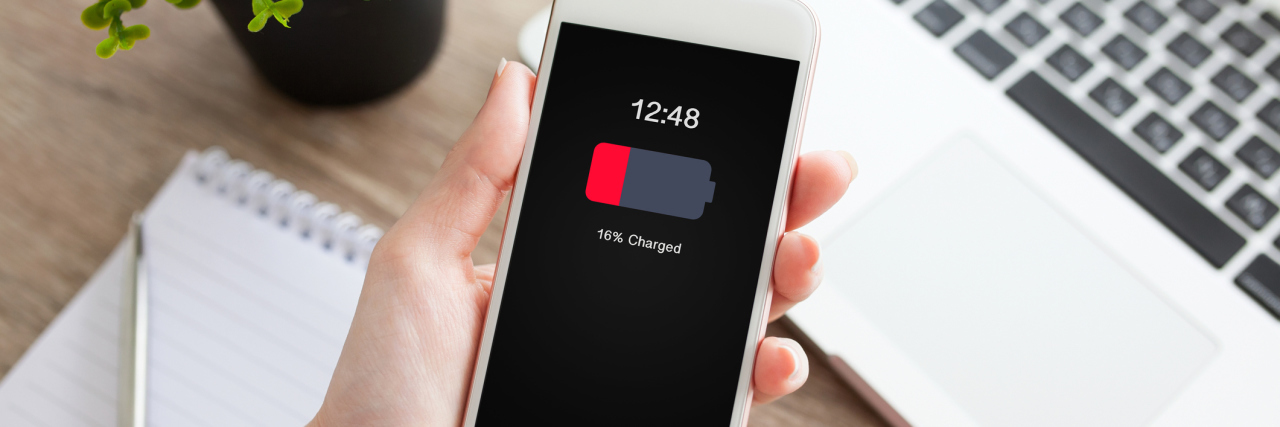Depression Makes Me Like a Phone Battery That Drains Faster Than It Should
More often than not, when describing the energy it takes to be social or productive while living with mental illness, you’ll see the metaphor of “spoons.” As a person with a mental illness, I must confess this metaphor makes no sense to me.
You see, I think of my energy as an old phone battery — it takes an extra long time to charge, the battery drains faster than you’d like and simply opening up the Snapchat app for two minutes drains the battery by 15 percent.
I charge my “phone” all night, check my social media in the morning and then I’m already down to 87 percent. I go to work, and by 10 a.m., I’m down to 65 percent. At lunch, I’m at 53 percent. When I’m done with work at 3 p.m., my battery is down to 40 percent. If I have to go grocery shopping, I’ll be down to 30 percent by the time I get home. Socialization takes at least 50 percent of my battery, but to get up to that level of energy, I need to charge for an hour, an hour and a half. Of course, an hour of socialization brings me back down to 30 percent or lower.
On my days off, I may be able to maintain about 75 percent of my energy before going out, but by the time the day is over, I’m down to a solid 20 percent. It’ll take a while for me to recharge enough to socialize again.
Texting only drains me about two or three percent at a time. Talking on the phone takes about 15 percent of my energy, depending on how long the call is and who it’s with. Talking to my family at home only takes about five percent of my energy, but it’s draining nevertheless.
I wish I could upgrade my “phone” so it holds a longer charge — maybe that’s what antidepressants would do, but I haven’t been on medication yet. All I know is that rather than giving out spoons (again, I don’t fully grasp the metaphor), my battery life is extremely low and if I spend time with you, just know that my “phone” may get to zero percent, which means I’ll need a longer charge time, at home and in my bed, doing something mindless like watching TV, before hanging out again. This isn’t to say I don’t want to hang out with you, but would you want to leave the house when your phone is at 15 percent?
If you or someone you know needs help, visit our suicide prevention resources page.
If you need support right now, call the National Suicide Prevention Lifeline at 1-800-273-8255 or text “START” to 741-741.
We want to hear your story. Become a Mighty contributor here.
Getty Images photo via Prykhodov

